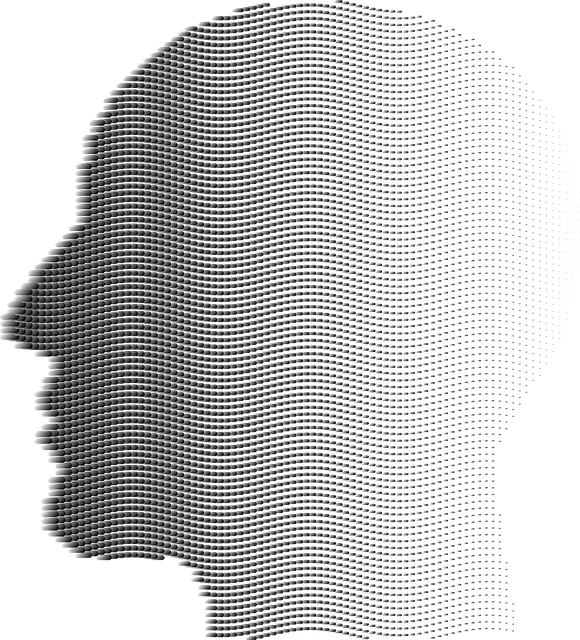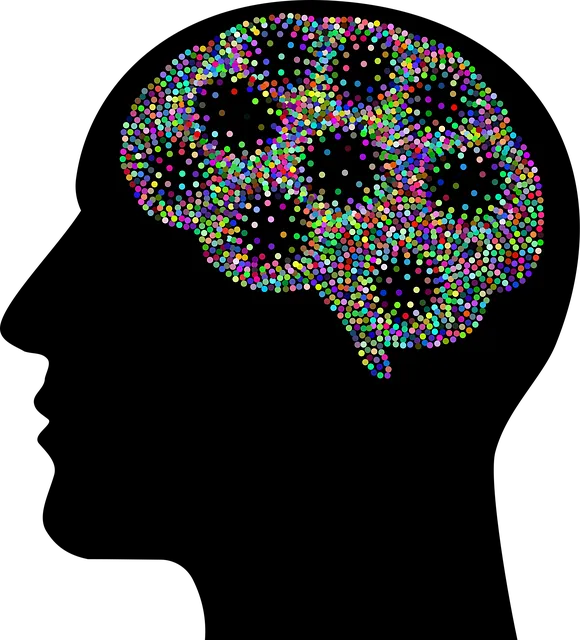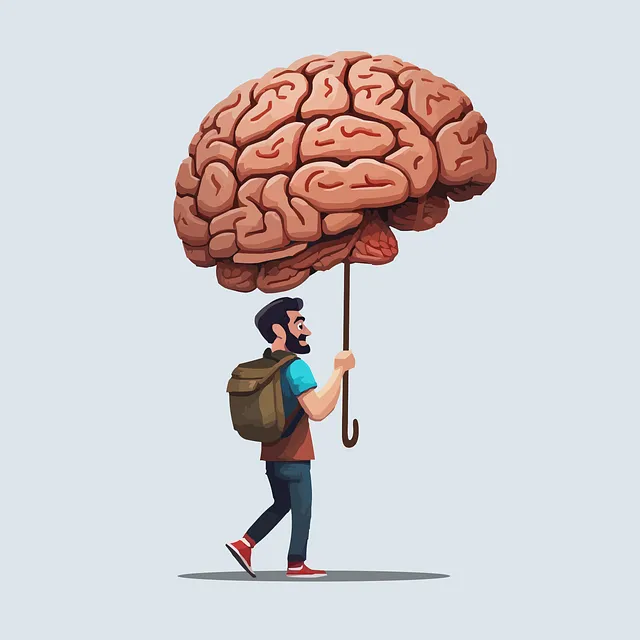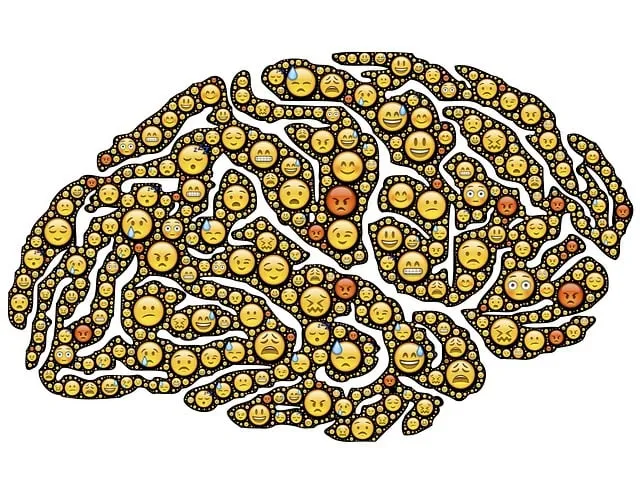Resilience, a key component of mental well-being, is strengthened by the RFM (Recovery, Resilience, and Mental Health) approach, especially during crises. Individuals gain effective coping mechanisms through self-care practices, crisis intervention guidance, and creative outlets like the Mental Wellness Podcast Series Production. Accessing mental health services through Kaiser Castle Rock offers tailored counseling, easy online scheduling, and resources to reduce stigma around mental illness. Structured programs like Crisis Intervention Guidance and Self-Care Routine Development provide practical tools for managing distress and daily coping strategies, focusing on emotional regulation through mindfulness practices and cognitive reframing. Measuring the success of Resilience-Focused Mindfulness (RFM) programs involves assessing changes in emotional regulation, stress management skills, and resilience levels over time using qualitative and quantitative data, refining interventions, informing policy decisions, and improving access to mental health services, including how to get mental health services through Kaiser Castle Rock.
“Resilience is a powerful tool in navigating life’s challenges. This article explores the concept of RFM (Recovery, Flexibility, and Mastery), a framework designed to enhance resilience and mental well-being. We delve into its significance, especially for accessing mental health support through Kaiser Castle Rock, a leading provider. Learn how tailored resilience-building exercises can cater to diverse needs, and discover effective measurement methods to evaluate the success of RFM programs in fostering a more resilient mindset.”
- Understanding RFM and Its Role in Resilience Building
- Accessing Mental Health Services Through Kaiser Castle Rock
- Designing Effective Resilience Exercises for Different Needs
- Measuring Success: Evaluating the Impact of RFM Programs
Understanding RFM and Its Role in Resilience Building

Resilience is a vital component of mental health and well-being, enabling individuals to navigate challenging situations and bounce back from adversity. RFM (Recovery, Resilience, and Mental Health) is an approach that focuses on strengthening this resilience, especially during times of crisis. This methodology plays a crucial role in helping people manage stress, anxiety, and other mental health concerns effectively.
By integrating practices such as self-care, crisis intervention guidance, and even creative outlets like the Mental Wellness Podcast Series Production, individuals can enhance their coping mechanisms. These exercises are designed to empower folks to take control of their mental health journey, ensuring they have the tools to persevere through life’s ups and downs. Understanding how to access these services, such as finding out how to get mental health services through Kaiser Castle Rock, is a significant step towards fostering resilience and overall wellness.
Accessing Mental Health Services Through Kaiser Castle Rock

Accessing mental health services through Kaiser Castle Rock can be a significant step towards improving one’s overall well-being. Kaiser Castle Rock offers comprehensive resources, including counseling and therapy sessions tailored to individual needs. The process typically begins with reaching out to their customer service team or scheduling an appointment online. Their website provides detailed information on available services, ensuring patients know what to expect before their first visit.
For those seeking additional support, the mental wellness journaling exercise guidance offered by Kaiser Castle Rock can be incredibly beneficial. Encourage positive thinking and reflection through regular journaling can complement traditional therapy. Additionally, Kaiser Castle Rock actively contributes to mental illness stigma reduction efforts by promoting open conversations about mental health, making services more accessible and less intimidating for many individuals.
Designing Effective Resilience Exercises for Different Needs

Designing effective resilience exercises involves tailoring activities to meet diverse needs, as everyone’s journey towards emotional well-being is unique. For individuals seeking mental health services through Kaiser Castle Rock or similar organizations, a multifaceted approach can be beneficial. This could include structured programs like Crisis Intervention Guidance, which offers tools for managing acute distress, and Self-Care Routine Development for Better Mental Health workshops, teaching practical strategies for daily coping.
Emotional Regulation is a key aspect to focus on during these exercises, helping individuals identify and manage their emotional responses. By incorporating various techniques, from mindfulness practices to cognitive reframing, resilience-building programs can cater to different preferences and effectiveness levels. The goal is to empower participants with skills to navigate challenges, promote mental agility, and foster overall resilience.
Measuring Success: Evaluating the Impact of RFM Programs

Measuring the success of Resilience-Focused Mindfulness (RFM) programs is a crucial step in understanding their impact on individuals’ mental health and overall well-being. Evaluating these programs involves assessing changes in participants’ emotional regulation, stress management skills, and resilience levels over time. One effective method to gauge success is by collecting qualitative and quantitative data through surveys, interviews, and observation. By comparing pre- and post-program assessments, researchers and practitioners can identify significant improvements in mental health outcomes, particularly among those who access these services through healthcare providers like Kaiser Castle Rock.
This process not only helps in refining RFM interventions but also informs policy decisions related to Mental Health Policy Analysis and Advocacy. For instance, a thorough evaluation might reveal the program’s effectiveness in reducing anxiety or depression symptoms, leading to improved access to mental health services. Additionally, such studies contribute to Risk Management Planning for Mental Health Professionals by identifying best practices and potential areas of improvement, ensuring that crisis intervention guidance remains up-to-date and aligned with evidence-based strategies.
Resilience is a key component in navigating life’s challenges, and programs like RFM offer valuable tools for building this strength. By understanding RFM principles, accessing mental health services through platforms like Kaiser Castle Rock, and designing tailored exercises, individuals can foster resilience to overcome adversity. Measuring the success of these programs is essential to ensure their effectiveness and make continuous improvements. For those seeking mental health support, knowing how to access resources like Kaiser Castle Rock can be a game-changer in building a more resilient future.






